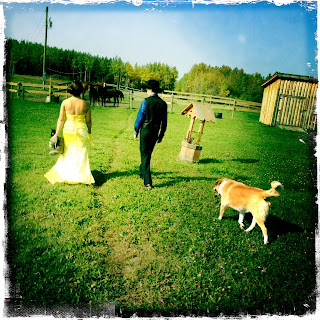"ÉCONOMUSÉE British Columbia Artisans Concept is trademarked and recognized by UNESCO as a model for the preservation of intangible heritage. There are currently 53 ÉCONOMUSÉES in Canada (Atlantic Provinces and Quebec). In 2012, British Columbia joined the ÉCONOMUSÉE network by opening its first two pilot sites at Merridale Ciderworks in Cobble Hill, and at Hazelwood Herb Farm in Yellowpoint." (ÉCONOMUSÉE Pilot Initiative Evaluation Report, 2012).
I have had the good fortune to work with Pascale and her team on developing a model for evaluation of the economic impacts of the first two sites in BC. Throughout this journey, we are learning a lot about the uptake of an innovative new model in a new context.
Embedded in the model from its earliest origins, is the notion of collaboration with academic institutions. This is the topic that Pascale wanted me to speak about on Thursday. I have never been asked to speak about how to collaborate successfully with academics and can only speak about my own experience and observations so it was an interesting assignment. Based on the feedback and discussion that developed, I thought it would be worthwhile sharing with others, should the messages resonate elsewhere.
Academics are an interesting group to say the least. There are all shapes, sizes, varieties and dispositions to this group so generalizations should be avoided (as with all groupings one could say). But in general, for others to work with academics, there needs to be a baseline understanding of the "realities of the other". Academics are often in situations where their rewards are based on performance indicators that have little or nothing to do with the needs of communities, organizations or government policies. Peer reviewed publications, conferences and funding are the "carrots" that motivate many. Not all value or want to work on "applied projects" as they are deemed "off the side of the desk" activities or unrecognized pursuits by the academe. Add to this the rigidity of the semester system, the bureaucratic processes like ethical approval, and the tendency for 25%-50% admin fees for projects and it is easy to see how organizations or government have developed a view of academics as unwilling or difficult partners to collaborate with.
I heard a number of these expressed by those in the room last week and while not new to me, they reminded me of the work we need to do to address these barriers to engagement. I tried to share a few tips for those in the room last week to break through these barriers and develop long term relationships based on trust. I suppose I could also develop a similar list for academics to learn how to more effectively link with communities, regions, and government policy makers (a future blog perhaps).







